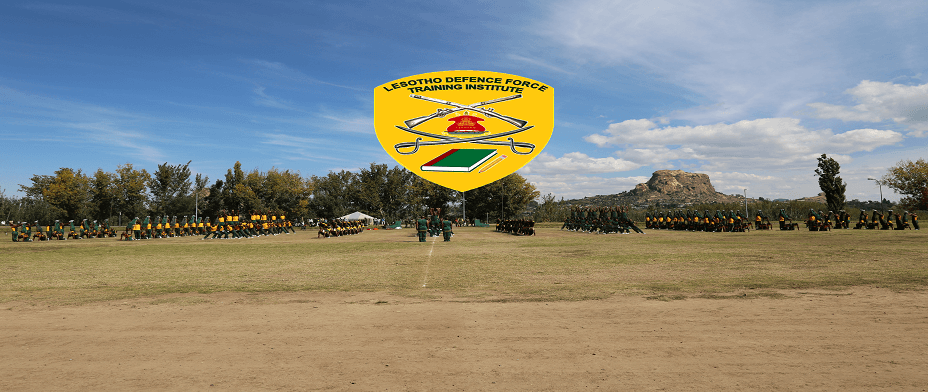Employees The Institute trains its own instructors; categorised into different fields depending on their performances in various skills. The idea being to ensure that the placement of such instructors will benefit the students, and eventually bring about good results. To become an instructor, one would have acquired the initial military training and could be chosen based on his outstanding performance in one of the subjects taught during the training sessions. This means that the majority of the instructors start at the military school first. The instructors' trainings are continuous to keep them up to standard and ready for any training that could be awarded to the school regardless the level and rank structure of such course. |
Professions The main profession of the institute is teaching. The selection of instructors is done by a specific team in the MTI. During the training sessions students are earmarked based on their conduct and performance and later called for interviews to become instructors. People with teaching profession will not become instructors automatically. The criteria will not differ from other candidates during selection, though of course teaching profession could be an added advantage. The military teaching requires a unique approach given the nature of the organization hence the compulsory Instructors' Course which is a selection training of some sort. In addition to the subjects taught in the army, counselling is one of the Professions taken seriously in the MTI. |
Training and Development Number of courses to be attended by MTI staff home and abroad is triggered by mandatory courses locally, nomination by Human Resources Office and requirements for invitation by friendly foreign forces. Training and development of instructors is key to the development of the organization as it involves the sharpening of skills, capabilities, changing of attitude and gaining more knowledge to enhance the performance of the members. At times the Defence Force takes advantage of training from other training institutions abroad who sent training staff to impart needed skills in the LDF. |
Values and Standards The army relies on the infantry school to sharpen the soldiers into becoming professional and as a result instructors are the first to set the required standard before the trainees. The set values and standards are as follows; confidence, resilience, diligence, enthusiasm, respect, team work, loyalty, creativeness, innovativeness and esprit de Corp.
Confidence is required and stems from thorough knowledge of subject matter and to have a high standard than to those of the students. It therefore calls for instructors to maintain focus in everything they do and pay attention to minor details in order to have full control over training of the student soldiers or officers.
Resilience goes with attitude as key aspects to be highly considered by people imparting knowledge to the trainees. It should include building a soldier who is agile and flexible to manage different difficult situations that a soldier is trained for. They are supplemented with an ability to speak clearly, walk majestically, and mastering man management skills which are fairness, friendliness and firmness.
Diligence is to be detailed in every way when doing their work. Without clear focus instructors could frustrate the trainees and the system as a whole. To attain diligence the instructors are to adhere to the principles of command and control, which they practice as a unit before the students are brought into it.
Enthusiasm is a unit culture practiced from the first day of becoming an instructor. Every instructor is required to possess enthusiasm because through it the school gains recognition. All must show interest in everything they do and with a positive mind at all times in order to become the role models to all the trainees. Without such trait the army would not attain professionalism.
Respect by the instructors helps them appreciate everyone regardless of rank, culture, religion or educational level. It is the sort of respect they give any other human being. Instructors are taught to show politeness when they meet the trainees but not too soft also. The common practice is "please and thank you". And these words are aimed to boost trainees' self-esteem and confidence level and guide them through the training process.
Team Work does not only apply to the instructors, but that is how the military personnel is nurtured. The army teaches everyone to watch someone's back and vice versa. To join hands in working together to achieve MTI goals through cooperation, tolerance and commitment is the primary goal.
Loyalty is one of the fundamental traits of a professional soldier. It is instilled in every instructor to ensure that the same is embedded into each member that is trained at The Institute at all times. The loyalty is to Defence Force and its command down the LDF structure.
Creativity is a rare skill in general. Being creative and innovative give an instructor a wide scope of options for acquiring training and needed survival skills which are to be imparted to the trainees during training. Additionally, sensitivity to work ethics results in a focused kind of culture which bears fruitful results of being quick to detect and respond to any behaviour which might hurt others or make them feel ill-treated. That requires additional skill of improvisation to harmonize work ethics and creativity skills.
Esprit de Corps principle fits well in the MTI given the nature of the unit. The instructors have the greater challenge that requires cohesion from them in order that no trainee would find the means to penetrate and discard the oneness within them. Espirit de corps is easy to maintain since everyone has a story to tell about MTI because all went through the same unit in their initial training or sometime in their military career. It then helps them show ultimate pride and mutual loyalty to MTI.
|

